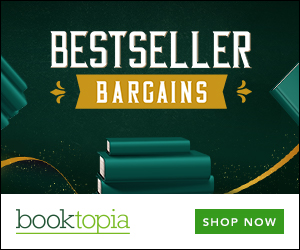Each year the eve of Anzac Day is given over to the International Day of Multiculturalism and Diplomacy for Peace. This year the conjunction is particularly apposite at a time when the air is full of wars and rumours of war. Anzac Day recalls the generosity and death of those who fought in a military campaign of the past, draws our attention to those dying in current wars, and asks where we should stand on future wars.

The bringing together of past and present wars is important. It encourages us to take a realistic view of the war in which the landing on Gallipoli was a small part. It invites us also to attend to the full reality of what we see around us in Myanmar, Gaza, Ukraine and Sudan. That realistic view of war naturally invites reflection on the importance of Multilateralism and Diplomacy for Peace.
Anzac Day rightly commemorates those who served, were injured and died on the Turkish beach. It reminds us of their generosity in volunteering to fight on behalf of the Australian people. They, their families and their children should be held in honour in our memory. The battle which gave its name to Anzac Day, however, was a defeat that failed in its goal. Much of the fighting there was representative of previous wars. It was part of a long European war, however, in which massive developments in weaponry meant that men killed and died on an industrial scale often without any sight of opposing troops. It was an introduction to the war of machines. The war that took so many lives, moreover, did little more than plant the seeds for an even more destructive war in which citizens as well as soldiers were fair game.
In that sense, the guns of Gallipoli were a step on the road to the helicopters of Myanmar, the drones in Ukraine and the destroyed cities of Gaza. They preceded wars in which what counts as victory is the destruction of homes, of lives and of civil society, and the embitterment of generations. It was set within a world enslaved to a geopolitics in which millions of people are expendable for the prize of a passing advantage. As a Roman writer said of their legions, ‘They make a desert and call it peace’.
'Anzac Day draws us away from the geopolitical chess board to consider the price that so many persons have paid for the wars in which their leaders join. It reminds us of the need for diplomacy based on respect for the humanity of persons on all sides of conflict.'
Anzac Day is a day of remembering the wars that followed it. It is also a day of compassion for those who suffer in war both in the past and the present. As we think of the soldiers who fought and died at Gallipoli, we imagine also the families they left behind and to which they returned, the soldiers who went with light hearts to fight and returned wounded inwardly by the war, the burden borne by their families, the many women widowed or left single by the death of so many marriageable men, the small towns stripped of a generation of young men, and the grief that enveloped so many people. Anzac has been described by some military historians as the making of Australia. If so, it did so by stripping and not by building.

That is why in the face of the vastly more powerful weapons used in modern war and the ineffectuality of attempts to preserve civilians from its horrors, Pope Francis follows earlier Popes in describing war as the enemy and calling for diplomacy to end it. This call is always resisted by those who call on us to take sides in conflicts and see the killing of women and children and the destruction of civil society on the other side as collateral damage. They habitually see diplomacy as appeasement and anything short of unqualified victory as defeat.
Anzac Day draws us away from the geopolitical chess board to consider the price that so many persons have paid for the wars in which their leaders join. It reminds us of the need for diplomacy based on respect for the humanity of persons on all sides of conflict.
Andrew Hamilton is consulting editor of Eureka Street, and writer at Jesuit Social Services.
Main image: (Getty images)